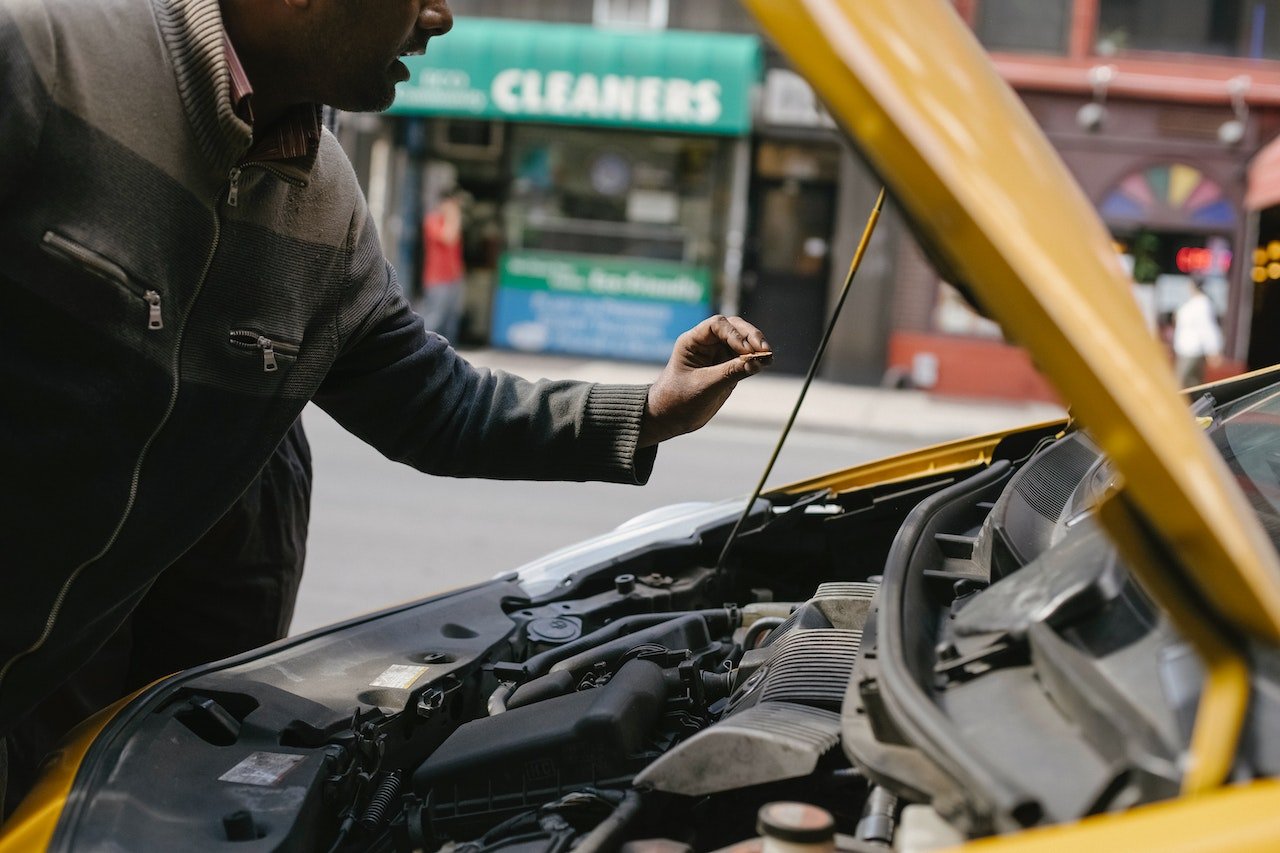Hot engine failure to start may indicate issues with fuel delivery or ignition system, potentially caused by heat-related malfunctions. Having your car refuse to start when the engine is hot can be frustrating and inconvenient.
There are a few common causes for this issue, such as vapor lock in the fuel system, a failing starter motor, or a faulty ignition coil. We will explore the possible reasons why your car won’t start when the engine is hot and provide you with some fixes to help resolve the problem effectively.
By understanding the underlying causes, you can take the necessary steps to get your car back on the road quickly and smoothly.

Credit: www.jdpower.com
Causes Of A Car Not Starting When The Engine Is Hot
If your car fails to start when the engine is hot, several potential causes need investigation. Issues with the fuel system, ignition system, or the temperature sensor might be at fault. Professional diagnosis is recommended to identify and fix the problem efficiently.
Insufficient Fuel Delivery
One of the leading causes behind a car not starting when the engine is hot is insufficient fuel delivery. When the engine is hot, it requires a certain amount of fuel to start and run smoothly. However, if there is a problem with the fuel delivery system, the engine may not receive the required fuel, leading to starting issues.
There are several reasons why the fuel delivery system may fail to supply enough fuel. It could be due to a clogged fuel filter, a malfunctioning fuel pump, or a faulty fuel pressure regulator. A clogged fuel filter restricts the flow of fuel to the engine, while a malfunctioning fuel pump fails to pump an adequate amount of fuel. Additionally, a faulty fuel pressure regulator disrupts the proper regulation of fuel pressure in the system.
If you suspect that insufficient fuel delivery is causing your car to not start when the engine is hot, it is crucial to have the fuel delivery system inspected and repaired by a qualified mechanic. They will be able to diagnose the exact issue and recommend the necessary repairs or replacements.
Ignition System Problems
Another common cause of a car not starting when the engine is hot is ignition system problems. The ignition system is responsible for producing the spark that ignites the air-fuel mixture in the engine cylinders, enabling the car to start and run. If there is a problem with the ignition system, such as a faulty ignition coil, spark plugs, or ignition control module, the engine may fail to start when hot.
One of the main culprits behind ignition system problems is heat. When the engine is hot, it generates a significant amount of heat, which can affect the performance and reliability of the ignition components. Heat can cause ignition coils to lose their conductivity, spark plugs to misfire, or the ignition control module to malfunction.
If you are experiencing starting issues when the engine is hot, it is essential to have the ignition system checked and repaired. An experienced technician can identify the faulty components and perform the necessary replacements or repairs to ensure proper ignition and starting.
Overheating
Overheating is another factor that can lead to a car not starting when the engine is hot. When the engine overheats, it can cause various problems within the cooling system that may affect the starting process. Overheating can result from issues such as a malfunctioning radiator, a blown head gasket, or a defective thermostat.
When the engine overheats, it can cause the radiator to fail in removing heat from the engine coolant effectively. This inadequate cooling can lead to increased engine temperatures and subsequent starting problems. Additionally, a blown head gasket can cause coolant to leak into the combustion chambers, affecting the combustion process and leading to starting difficulties.
If your car tends to overheat and experiences starting problems when hot, it is crucial to have the cooling system inspected and repaired. A qualified mechanic will be able to identify any overheating-related issues and perform the necessary repairs or replacements.
Faulty Starter Motor
A faulty starter motor can also be a culprit when a car fails to start when the engine is hot. The starter motor is responsible for starting the combustion process by engaging with the flywheel and turning the engine. However, if the starter motor is faulty or worn out, it may struggle to crank the engine when it is hot, resulting in starting issues.
There are several signs of a faulty starter motor, such as a clicking sound when you turn the key, grinding noises, or no response at all when attempting to start the car. If you notice these symptoms, it is essential to have the starter motor inspected and replaced if necessary.
Regular maintenance and timely repairs of the starter motor can help prevent starting problems when the engine is hot. It is advisable to have the starter motor checked during routine inspections to ensure its proper functioning.
Symptoms Of A Car Not Starting When The Engine Is Hot
When your car won’t start when the engine is hot, it can be frustrating and inconvenient. Understanding the symptoms can help diagnose and fix the issue promptly. Here are the key signs that indicate a potential problem:
Engine Cranks But Won’t Start
One common symptom of a hot engine problem is when the engine cranks but fails to start. This could indicate issues such as a faulty fuel pump, ignition system problems, or fuel delivery issues.
No Response From The Starter
If you encounter no response from the starter when attempting to start your car with a hot engine, it may point to a faulty starter motor, ignition switch problems, or electrical issues.
Engine Stalls Immediately After Starting
If your car starts but then stalls immediately when the engine is hot, it could be a sign of fuel system problems, a malfunctioning sensor, or air intake issues.
Diagnosing A Car Not Starting When The Engine Is Hot
Diagnosing a Car Not Starting when the Engine is Hot
If your car is having trouble starting when the engine is hot, it can be an indication of various underlying issues. To accurately diagnose the problem, you need to focus on specific areas of your vehicle. Here are key steps to follow in diagnosing a car not starting when the engine is hot:
Checking The Fuel System
- Inspect fuel lines for leaks or damage
- Check fuel pressure using a gauge
- Ensure fuel pump is functioning properly
Inspecting The Ignition System
- Examine spark plugs for wear or fouling
- Test ignition coils for proper functioning
- Check ignition timing
Checking For Overheating
- Verify coolant levels and look for leaks
- Check radiator for obstructions
- Monitor engine temperature gauge
Testing The Starter Motor
- Inspect for any corrosion or loose connections
- Test the battery for proper voltage
- Check starter motor for signs of wear

Credit: www.way.com
Fixes For A Car Not Starting When The Engine Is Hot
Fixes for a Car Not Starting when the Engine is Hot
Ensuring Sufficient Fuel Delivery
Check fuel pump operation, fuel filter clogs, and fuel lines for blockages.
Repairing Ignition System Issues
Inspect spark plugs, ignition coils, and wiring for wear or damage.
Addressing Overheating Problems
Monitor coolant level, radiator condition, and thermostat functionality.
Replacing Or Repairing The Starter Motor
Test for electrical issues, check solenoid connections, and evaluate the starter’s condition.
Preventive Measures To Avoid A Hot Engine Start Failure
Preventive Measures to Avoid a Hot Engine Start Failure
Regular Maintenance
Regular maintenance is crucial in preventing hot engine start failure. By sticking to a consistent maintenance schedule, you can ensure that all components of your car are in optimal condition. This includes regular oil changes, filter replacements, and inspections to catch any potential issues before they lead to a hot engine start failure.
Cooling System Inspection
Regular inspections of the cooling system are essential for preventing hot engine start failure. Make sure to check for any leaks, damaged hoses, or malfunctioning thermostat. It is important to maintain a proper coolant level and ensure that the radiator is clean and free from debris that could impede proper cooling.
Fuel System Maintenance
The fuel system plays a crucial role in the starting of a hot engine. Regular inspections for clogged fuel filters, malfunctioning fuel pumps, or dirty fuel injectors are necessary to prevent hot engine start failure. Keeping the fuel system clean and ensuring the fuel quality is top-notch is vital in preventing start-up issues.
Battery And Starter Motor Check
The battery and starter motor are key components in the starting process. Regularly checking the battery for corrosion, loose connections, and overall health is essential for preventing a hot engine start failure. It is also important to inspect the starter motor for any signs of wear or malfunction and address any issues promptly.

Credit: gogirl.co.uk
Conclusion
A hot engine causing car starting issues can be frustrating. By understanding possible causes like a faulty ignition system or overheating components, you can take the necessary steps to troubleshoot and fix the issue. Consulting a professional mechanic for a thorough inspection and repairs may be the best solution for a persistent problem.


